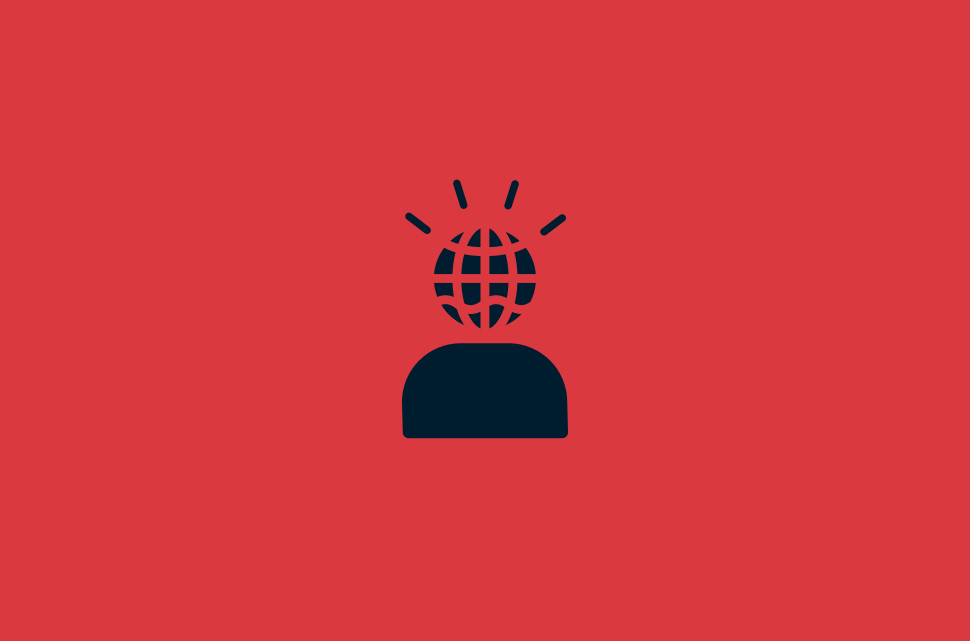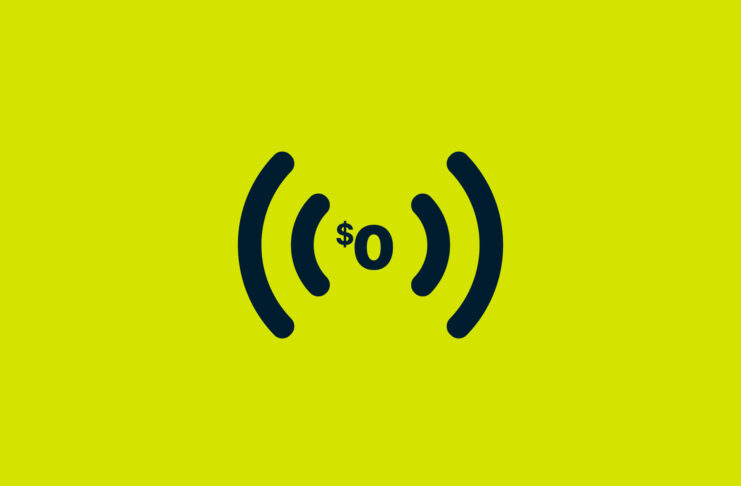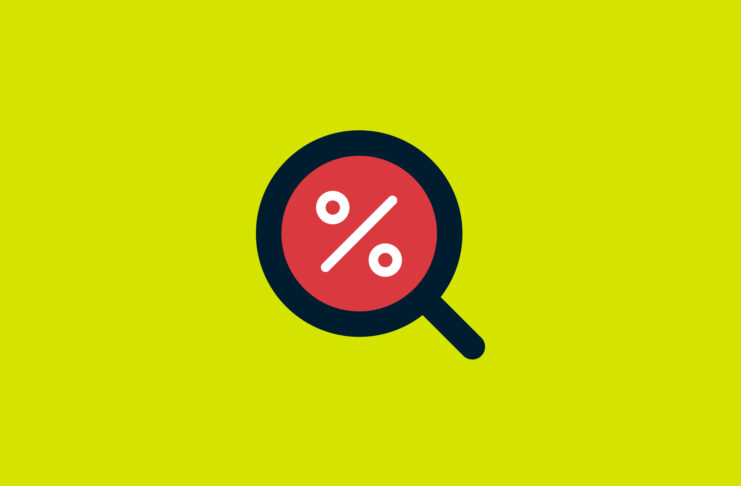Over 60% of the world’s population has regular access to the internet in one way or another, and most people spend just over a quarter of their day online. That’s a lot of connections. Even if we spend most of our energy online posting pictures of cats—which, by the way, was totally a thing before the internet existed—or playing Pokémon Go, the internet’s capacity as a tool for social change can’t be ignored.
But none of that even matters if you can’t establish a connection in the first place. What’s worse is when you can connect but your speeds are locked to something ridiculous like 128kbps. In the most connected age we’ve been as humans, something as minuscule as a faulty cable or outdated software can cause unexpected outages. You know what they say, a butterfly flaps its wings in Seattle and now I can’t connect to my Netflix.
Here’s what may be behind the buckles of your digital straight jacket:
Router reach
Right off the bat, let’s clarify that your choice of router won’t greatly affect the internet speeds in your home. What it will affect though is the coverage that you receive. In other words, the more capable the router, the more likely it will be able to handle distance and signal strength. If you find that your internet connection is markedly worse the further you move away from your router, it might be time for an upgrade.
Other factors that could affect your router’s speed can include any physical obstacles like walls or floors, especially if they’re concrete, and interference from electrical appliances or other Wi-Fi networks in close proximity to your devices.
How to fix it
Upgrade to a more powerful router. They cost more but will save you the hassle of needing to stay near your router for a good signal.
Someone has hijacked your internet connection
Everybody hates a moocher, and that includes the kind who eat into your internet connection. From buffering while streaming to increased ping while gaming, an unwanted addition to your Wi-Fi network can really decrease the quality of your internet connection. This can happen if your router is unprotected or has a weak password.
How to fix it
Fixing this is as simple as changing your password and ensuring that it’s a strong one. Our password generator can help with that!
Poor network management
Your speed issues may depend on the number of devices you have connected to your router simultaneously. Perhaps you have a few seldom-used devices connected to your network like an older laptop, gaming console, or a variety of Internet of Things (IoT) devices.
How to fix it
There are two things you can try here.
The first is to prioritize how your network handles data by adjusting your router’s Quality of Service (QoS) settings. QoS refers to the measurement of overall performance of a user’s experience on a network when it comes to a network with limited capacity. By adjusting your router’s QoS settings, you can prioritize the performance of critical applications or devices. This can be done by logging into your router’s dashboard, changing the QoS settings, then restarting your router.
The second is to audit which devices you allow to connect to your router. Log into your router’s dashboard and view the network map. From here, you can manually deny any devices you no longer want to connect to your network.
Bandwidth throttling
Throttling happens when ISPs deliberately slow down your internet speeds based on websites you visit, content that you’re streaming, or servers that you’re gaming on. ISPs do this because it still allows them to reduce traffic across their networks, thereby allowing them to service more customers without needing to alter their network capability. And it’s not like they can’t handle the extra data either. For example, there have been instances of forcing service providers to pay fees in order for their services to avoid being throttled. Comcast was quite famously chastised for this back in 2014.
A great way to tell if you’re being throttled is to perform a speed test with and without a VPN. A VPN gives you a new IP address and prevents your ISP from throttling you. If your internet speed increases with a VPN, it’s almost certain that your ISP is throttling your traffic.
How to fix it
Get a VPN! In fact, we know just the one.
Crowded channels
Wi-Fi routers support a variety of channels that allow for the sending and receiving of data. The most common being the 2.4 GHz frequency, which can support around 11-13 channels, and the 5GHz frequency which can support 36-165 channels. Depending on the frequency, some channels can overlap, which means more congested traffic.
How to fix it
If in doubt about which channels are being used, you can download network analyzer apps on your smartphone to scan your Wi-Fi networks to see what devices are connected to which channels. Following that, you should log in to your router’s dashboard to configure your channels according to your requirements.
Read more: 2.4 vs. 5 GHz Wi-Fi: Are you using the right one?
Cable quality
Hundreds and thousands of cables help to make up the backbone (or central nervous system?) of the internet. In fact, it’s what makes up the “net” in “internet.” These include fiber optic and underwater cables.
Whatever the type, the largest cables connect continents, and the smaller cables connect our homes and businesses to the outside world. Unsurprisingly, not all cables are equal, and this will dictate the quality and speed of your internet connection. Unfortunately, this means that if the cables servicing your area aren’t up to par, your internet speed will suffer.
How to fix it
Consider upgrading to fiber-optic cabling. In comparison with, say, cable internet, fiber optic will deliver much faster speeds. This could be a matter of changing your own cables or switching to a service that uses fiber optic.
You’ve exceeded your data cap
Depending on your data plan with your ISP or mobile carrier, you may have exceeded your monthly data allowance. While many providers have unlimited data plans at a set price, some will set a maximum monthly download limit and then throttle a user’s connection once that limit has been reached.
How to fix it
Where possible, upgrade your plan or look into the possibility of switching providers.
Your internet plan is too slow
Your current speed issues could also be due to bandwidth limitations on your current plan with your ISP.
How to fix it
Check your provider’s website for the exact bandwidth and speed inclusions on your monthly plan and perform a speed test several times throughout a day. If your results are similar to what is being advertised for your plan and it’s still too slow, you should consider upgrading your plan to a higher speed.
Your devices or software are outdated
The age of your desktop, laptop, console, or smart device may not be capable of taking full advantage of your Wi-Fi connection. In some cases, it might be your software or drivers that are outdated.
How to fix it
For devices that are capable, namely your desktop or laptop, a new wireless USB Wi-Fi adapter may provide a speedier internet connection by overriding your device’s existing in-built Wi-Fi card.
Also make sure that your operating system and apps are always up to date with the latest releases.
Background programs eating bandwidth
Resource-heavy programs may be eating up your bandwidth. These can include, but are not limited to: software updaters, game launchers, webcams for streaming, or smart speakers playing music in the background.
How to fix it
Perform an audit of what devices are currently connected to your network and unnecessarily draining your bandwidth, then disconnect them.
Malware and nuisanceware
A telltale sign that your devices may be infected with malware or nuisanceware is the sudden increase of data consumption on your devices. These can come in all shapes and sizes and include spyware, adware, scareware, and keyloggers.
How to fix it
Run regular antivirus scans on all of your devices. If a device is behaving strangely and you can’t seem to fix it, the ultimate method to try is a factory reset, which wipes everything and returns the device back to its original state when new.
Outages
The thing about outages is that they are entirely out of your control. Unless you’ve somehow directly caused your ISP servers to fail, there’s a very low chance you can change this outcome. However, this then leaves rectifying this issue entirely in the hands of your ISP, and if you live in a remote area or if your ISP is unreliable with maintenance or service upkeep, then you may have to opt for tethering to your mobile connection—which in and of itself, could also be affected by your location. Grim!
How to fix it
Where possible, change ISPs.
Will using a VPN slow down my internet?
All VPN services add a layer of encryption that can potentially slow down your internet connection. ExpressVPN, however, has a lightning fast, constantly optimized network, so you probably won’t notice a difference. Be sure to try our Lightway protocol (available on apps for Mac, Windows, Android, Linux, and routers), for a superior VPN experience. If you run into any problems, contact Support, available 24/7 by live chat and email.
Read more: How to boost Wi-Fi at home for faster internet
FAQ: Why is my internet so slow?
How can I troubleshoot my slow internet connection?
First things first, you should restart your router to see if this provides a slight boost in connectivity by resetting your connection settings.
If that doesn’t work, go through the above possible causes.
If you suspect it’s ISP throttling slowing your connection, here are some steps to test for it:
1. Sign up for ExpressVPN
2. Test your internet speed with and without VPN turned on
If your ISP is throttling your internet connection, you should experience a speed boost with VPN active.
Why is my internet so slow all of a sudden?
Any sudden decrease in internet speed could be caused by a variety of factors. The most common of these could be the distance of your devices to the router, malware or nuisanceware infecting your device, an increase of devices connected to your network, or an increase in background programs eating into your bandwidth.
Why is my download speed so slow when I have a fast connection?
Slow download speeds, in spite of a fast connection, could be related to an outdated router, distance of your devices to the router, ISP throttling, or the number of people or devices connected to your network. To test the latter, disconnect all other devices on your network and restart your downloads.

























Comments
Yes, I have U.S. Cellular as my provider and they are pretty ‘heavy-handed’ with their throttling which they ‘say’ ‘sometimes’ happens due to heavy volume of bandwidth usage on certain days and always after i exceed my data limit when it then drops to barely 3g speed to maybe open emails.
But when i do the speed test with my Express VPN on and then off, the speed slows down noticeably when the VPN is on. I’m in a rural area and also use a U.S. cellular ORBI wifi modem. So using Express VPN does NOT increase my speed. It slows it down?
So I did a speed test on my iPhone using home wi-fi, using Ookla, first without a VPN, then 3 minutes later using ExpressVPN:
28.6 and 19.2 with no VPN
20.9 and 16.2 with ExpressVPN
Would you care to comment?
Many ISPs employ the use of a modem/router.
As far as I know, ISPs do not permit installation of VPN software. So user would need to use his own VPN router. Would this not slow (NAT2) the internet speed ? Then the ISP, as you indicated, would throttle the speed as well. Overall, I believe this would reduce the internet speed. I have observed this with the ExpressVPN router. Quality of streaming is also reduced. Does ExpressVPN compensate for this?
I would like to do a speed comparison ISP (in my case Bell Fibe) with and without VPN router over a two week period. Is there a speed test software recognized by ExpressVPN that would permit me to do this at specified times during the day?
Looking forward to your comments.
My question is the speed function is greyed out. I am a new user to expressvpn